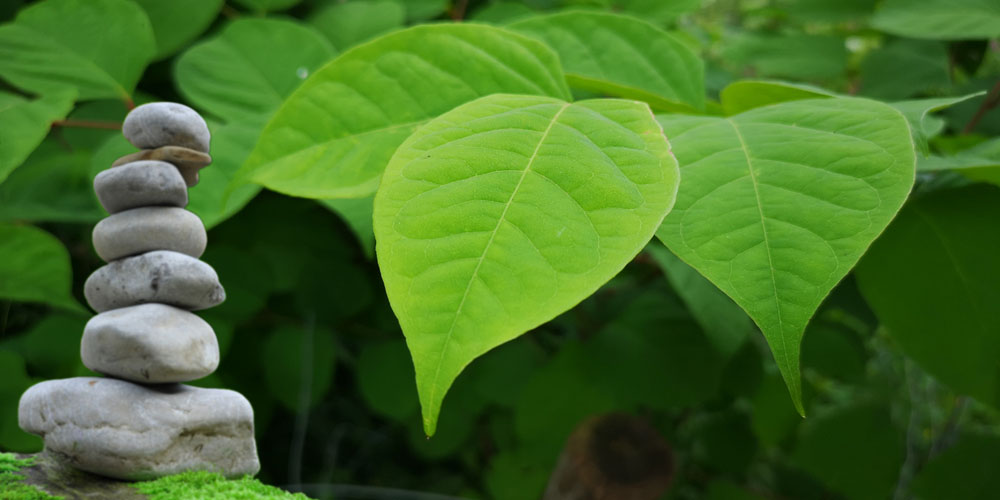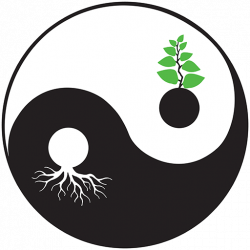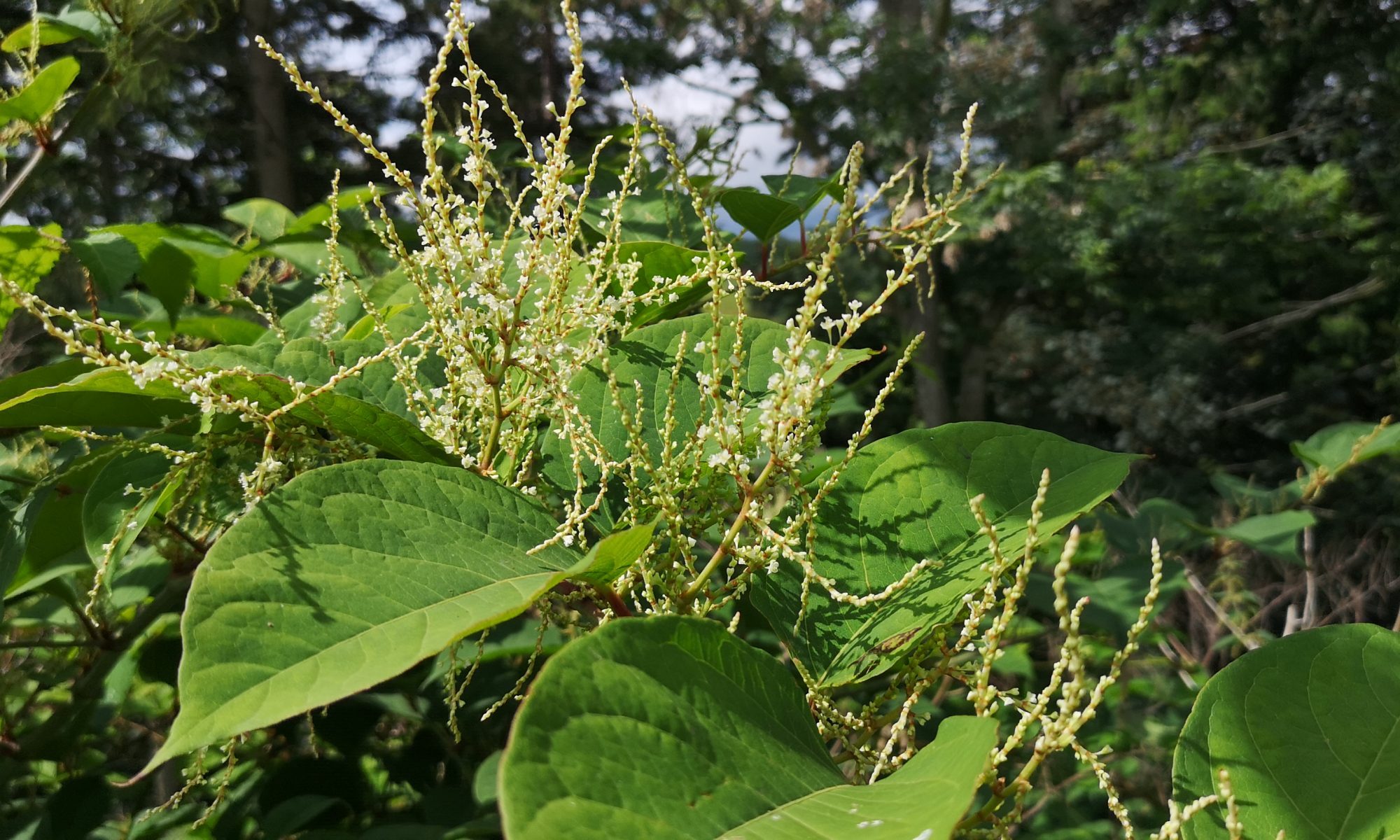I have heard this so many times, I thought it was time to set the record straight.
The answer is no, emphatically, you should not ever do this, to eradicate Japanese knotweed or anything else. Apart from the simple fact that it doesn’t work there are many other reasons why this approach is a seriously bad idea!
Japanese knotweed has an extensive and hardy root system. This root system, or rhizome, is the reason Japanese knotweed spreads so readily and is so hard to eradicate. The most effective chemical treatment is properly applied glyphosate, a systemic herbicide, introduced either through a foliar spray or stem injection.
Glyphosate works by prohibiting the development of the enzyme that makes the plant grow. It is systemic because it enters through the leaves (foliar) or stems (injection) and is then translocated, by the plants own sap system, into all parts of the plant, including the rhizomes.
In it’s natural life cycle, after it has flowered, the Japanese knotweed plant has done it’s job for that year and will start shutting down in readiness for the winter. On the slopes of volcanoes in Japan, where it originates, these winters can be severe. To survive them, Japanese knotweed stores all it’s energy in the underground rhizomes, the above ground stems then die back and dry out, becoming brittle canes.
Cutting these canes will not kill the plant, in fact, in it’s natural habitat these canes would be destroyed by animals, winds and, in some cases, volcanic eruptions.
Glyphosate, despite the current debate in the media over it’s safety, is the least harmful chemical approach for humans, animals, aquatic life and also the environment. If used properly, by professionals, in strict accordance to the product label and pesticides regulations, glyphosate poses minimal threat.
Glyphosate only acts on the leafy and sap filled parts of the plant and roots, if applied properly, only a minimal amount should come into contact with the soil, through run-off. Any glyphosate that does enter the soil, will break down into harmless carbon dioxide and nitrogen. The time this takes varies depending on what report you read, but nitrogen (naturally present in soil) is an important element in the breakdown of organic matter and carbon dioxide (essential for plants to breathe) is an important gas for everyone. Plants breathe it in and breathe out oxygen, which is kind of important for all of us!
Diesel, on the other hand, is a fossilised hydrocarbon fuel, produced from the distillation of crude oil (dead dinosaurs). It is made up of a whole soup of unpleasant chemicals, none of which you should allow to get into the soil. Diesel will poison the ground, can get into the water table and takes many years to break down.
Oh, and did I mention it’s flammable, has toxic fumes and will poison everything in the soil including micro-organisms, worms and insects?
So, please, do the environment and yourself a favour. Get in touch with a recognised professional and get your Japanese knotweed treated properly, with a controlled management plan.
Put diesel in your engine, not in your garden!



Comments are closed.